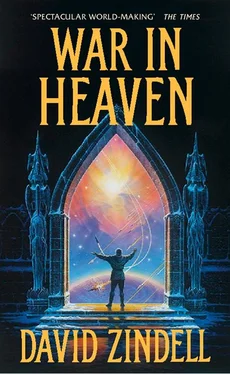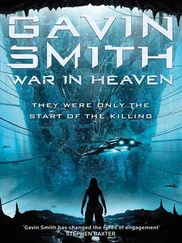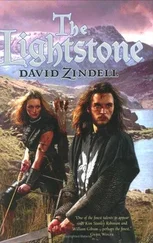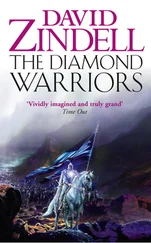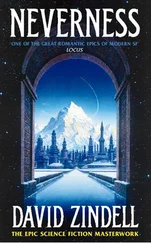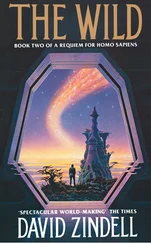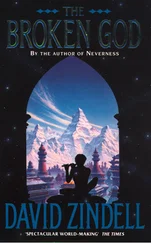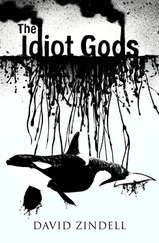DAVID ZINDELL
War in Heaven
BOOK THREE
of A Requiem for Homo Sapiens

This novel is entirely a work of fiction. The names, characters and incidents portrayed in it are the work of the author’s imagination. Any resemblance to actual persons, living or dead, events or localities is entirely coincidental.
Harper Voyager An imprint of HarperCollins Publishers Ltd. 1 London Bridge Street London SE1 9GF
www.harpercollins.co.uk
First published in Great Britain by HarperCollins Publishers 1998
Copyright © David Zindell 1998
David Zindell asserts the moral right to be identified as the author of this work
A catalogue copy of this book is available from the British Library
All rights reserved under International and Pan-American Copyright Conventions. By payment of the required fees, you have been granted the nonexclusive, nontransferable right to access and read the text of this ebook on-screen. No part of this text may be reproduced, transmitted, downloaded, decompiled, reverse-engineered, or stored in or introduced into any information storage and retrieval system, in any form or by any means, whether electronic or mechanical, now known or hereafter invented, without the express written permission of HarperCollins ebooks
HarperCollins Publishers has made every reasonable effort to ensure that any picture content and written content in this ebook has been included or removed in accordance with the contractual and technological constraints in operation at the time of publication
Source ISBN: 9780586211915
Ebook Edition © AUGUST 2016 ISBN: 9780008116774
Version: 2017-07-26
Gene Wolfe declared Zindell ‘one of the finest talents to appear since Kim Stanley Robinson and William Gibson – perhaps the finest’. His first novel, Neverness , was published to great acclaim. A reviewer in the New Scientist wrote of it in 1992: ‘David Zindell writes of interstella mathematics in poetic prose that is a joy to read.’
The Broken God , Book One of A Requiem for Homo Sapiens, is a sequel to Neverness . It has been hailed as Dune for the 1990s and was equally well-received: ‘SF as it ought to be: challenging, imaginative, thought-provoking and well-written. Zindell has placed himself at the forefront of literary SF.’
Times Literary Supplement
The Wild , Book Two of A Requiem for Homo Sapiens, was also published to great acclaim: ‘A disturbing vision of the impending collapse of a transgalactic society … the ideas are hard SF with philosophical undertones, and the story is compelling.’
New Scientist
With War in Heaven Zindell completes A Requiem for Homo Sapiens, bringing to a cataclysmic finale the most amazing journey in modern science fiction. He lives in Boulder, Colorado.
Cover
Title Page
Copyright
Praise
Chapter I: In the Hall of the Lords
Chapter II: Fate
Chapter III: The Two Hundred Lightships
Chapter IV: Sheydveg
Chapter V: The Golden Ring
Chapter VI: The Lords of Neverness
Chapter VII: A Law for Gods
Chapter VIII: Pain
Chapter IX: Mora’s Star
Chapter X: The Nine Stages
Chapter XI: The Paradox of Ahimsa
Chapter XII: The First Pillar of Ringism
Chapter XIII: Hope
Chapter XIV: The Face of a Man
Chapter XV: Tamara
Chapter XVI: The Starving
Chapter XVII: A Piece of Bread
Chapter XVIII: The Hunt
Chapter XIX: The Breath of the World
Chapter XX: The Ringess
Chapter XXI: The Battle of Ten Thousand Suns
Chapter XXII: The Universal Computer
Chapter XXIII: The Face of God
Chapter XXIV: Love
Chapter XXV: The Asarya
Chapter XXVI: The Lord of the Order
Chapter XXVII: Peace
Chapter XXVIII: Halla
Keep Reading
About the Author
Other Books By
About the Publisher
CHAPTER I
In the Hall of the Lords
Everything is God.
God is the wild white thallow alone in the sky;
God is the snowworm dreaming in his icy burrow;
God is the silence out in the great loneliness of the sea;
God is the scream of a mother giving birth to her child.
Who has beheld the world through God’s shimmering eyes?
God can see all things but cannot see himself.
God is a baby blind to his own terrible beauty.
Someday God will be a man who has learned how to see.
— from the Devaki Song of Life
I know little of God, but all too much of that godly race of beings that some call man. As gods we are destined to be – so teach the scryers and prophets of religions new and old. And yet few understand what is required to be a god, much less a true man. There are those who view the gods of the galaxy – the Degula Trinity, Iamme, the Silicon God, and all the rest – as perfect beings beyond pain or strife or death. But it is not so. The gods, though they be made of a million crystalline spheres as large as a moon, can die: the murder of Ede the God gives proof of the ultimate doom awaiting all beings whether made of diamond circuitry or flesh and blood. The gods, too, make war upon each other. Two million years ago, it is said, the Ieldra defeated the Dark God and thus saved the Milky Way from the fate of Dichali and the Aud Spiral and other galaxies that have disappeared down the black hole of the gods’ lust for the infinite. It is also said that the Ieldra have fused their souls into the light streaming out of the core of our galaxy, but other gods have evolved to replace them. There is Ai and Pure Mind and the April Colonial Intelligence and the One. And, of course, the greatest god of all, the Solid State Entity, She who had once been a woman named Kalinda of the Flowers. Compared to Her love of the stars and the life born in their fiery, hydrogen wombs, the ardour of a man and a woman for each other is only as a flaming match held up to the sun. And compared to Her hatred of the Silicon God, the passion of all the human beings who have ever lived is less than a drop of water in a boiling sea. And yet the human urge to destroy is no small thing. Human beings, as well as gods, can make war. They can destroy the stars. And yet they can say yes to the unfolding of new forms throughout the universe and create, too. This is the story of a man who was both creator and destroyer, my son, Danlo wi Soli Ringess – a simple pilot wise in the ways of peace who brought war to the heavens of many worlds.
One day as the galaxy turned slowly about its celestial centre, a lightship fell out into the near-space above a watery world named Thiells. The Snowy Owl was a long, graceful sweep of spun diamond, and it had carried Danlo across the galaxy from the Star of Neverness to lost Tannahill. His journey across the stars, and through the wild spaces of the manifold that lies beneath the stars, had been dangerous and long. Nine other pilots in their individual ships had set out on his quest to talk with a goddess, but only he had survived to fall on to the far reaches of the galaxy’s Perseus Arm. He had crossed the entire Vild, that hellish region of fractured space and dust and stars blown into dazzling supernovas. And then he had returned coreward across many light years to Thiells at the other edge of the Vild. Although he had fallen farther than any pilot in history, he was not the only one to have made a great journey. His Order – the Order of Mystic Mathematicians – had begun the great Second Vild Mission to save the stars. Other pilots on other quests had flung their lightships into the Vild like so many grains of sand cast into a raging sea. They were Peter Eyota and Henrios li Radman and the great Edreiya Chu, she of the
Читать дальше
